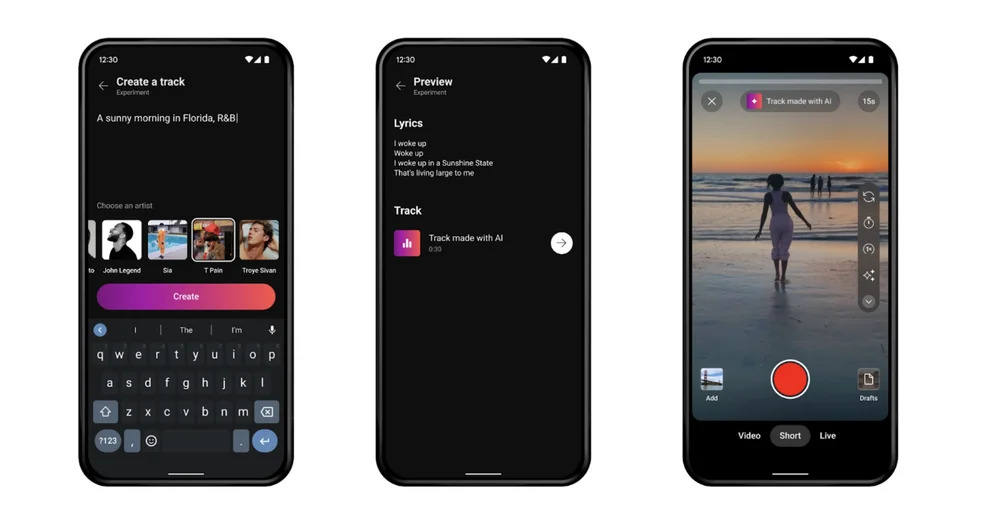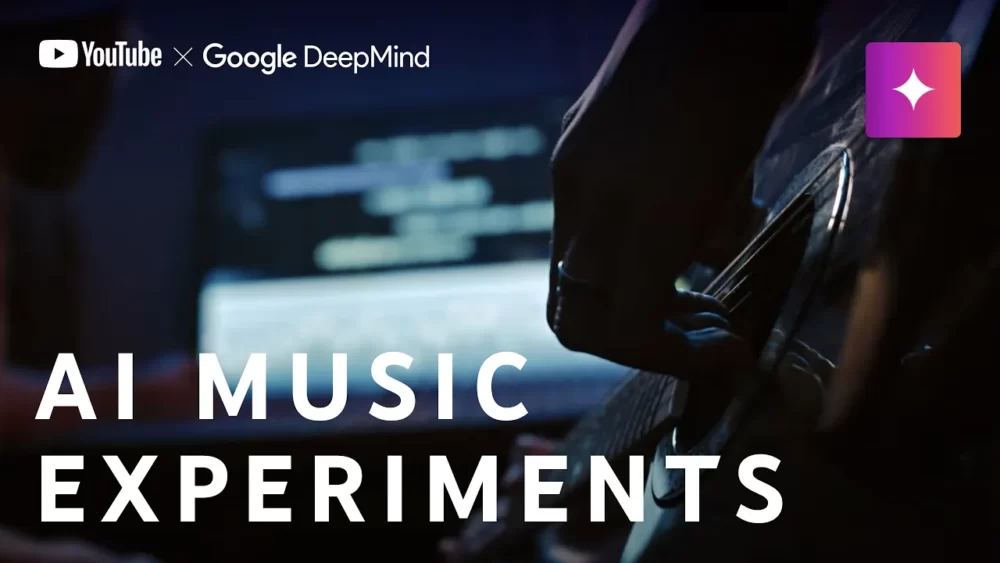YouTube has just started experimenting with a new AI tool for Shorts called Dream Track. It is only available to a small group of users in the United States at the moment since the feature is still in its experimental stage.
Dream Tack is powered by Google DeepMind‘s most advanced music generation AI model to date, Lyria. It will allow content creators on YouTube Shorts to make 30 seconds of original music tracks with just a few prompts.
The tool requires users to type in a small description for the music, select a participating artist from the carousel below, and it will create a song featuring the AI-generated voice of the selected artist. Tracks made with AI will also include a label to disclose it.

Here is what the feature looks like in action.
YouTube has partnered with 9 artists for this project including Alec Benjamin, Charlie Puth, Charli XCX, Demi Lovato, John Legend, Papoose, Sia, T-Pain, and Troye Sivan, all of whom have collaborated to make Dream Track possible.
Pop music sensation Charlie Puth said: “I’m extremely excited and inspired… YouTube has been a great partner in outlining its approach to AI and understands the need to work together to develop this technology responsibly, ensuring it will accelerate creativity instead of replacing it.”
This feature comes soon after YouTube updated its policies for AI-generated content. Google’s video-sharing platform now requires content creators to publicly disclose if their videos include any content that has been synthesized or altered using AI, such as deepfakes.
YouTube creators who neglect to disclose AI-generated content not only face the risk of demonetization but also the potential removal of their videos or suspension of their accounts for repeated offenses. Additionally, they may be subject to suspension from the YouTube Partner Program and other associated penalties.
On the other hand, users will also have the option to report AI-generated content and request removal from YouTube. For example, in cases where AI-generated content includes a recognizable individual based on their face or voice, the company will take steps to remove such content.
Likewise, music partners will be empowered to request the removal of AI-generated music content.
Additionally, YouTube is also adding its own AI chatbot and content summaries soon.






